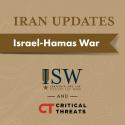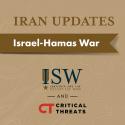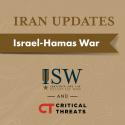Iran Update, May 9, 2024
May 9, 2024 - ISW Press
Israeli forces are re-clearing parts of the northern Gaza Strip, demonstrating that Hamas remains active beyond just Rafah. The Israel Defense Forces (IDF) launched a clearing operation into Zaytoun neighborhood, southern Gaza City, on May 8, marking the third time that the IDF has conducted a clearing operation there. The IDF began by conducting airstrikes targeting Palestinian militia observation posts, sniper positions and tunnels.










